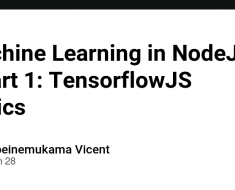
. 2023 Dec 11:JN-RM-1024-23.
doi: 10.1523/JNEUROSCI.1024-23.2023.
Online ahead of print.
Affiliations
Item in Clipboard
J Neurosci.
.
Abstract
White matter dysmaturation is commonly seen in preterm infants admitted to the neonatal intensive care unit (NICU). Animal research has shown that active sleep is essential for early brain plasticity. This study aimed to determine the potential of active sleep as an early predictor for subsequent white matter development in preterm infants. Using heart and respiratory rates routinely monitored in the NICU, we developed a machine learning-based automated sleep stage classifier in a cohort of 25 preterm infants. The automated classifier was subsequently applied to a study cohort of 58 preterm infants (31 females) to extract active sleep percentage over 5-7 consecutive days during 29-32 weeks of postmenstrual age. Each of the 58 infants underwent high-quality T2-weighted magnetic resonance brain imaging at term-equivalent age, which was used to measure total white matter volume. The association between active sleep percentage and white matter volume was examined using a multiple linear regression model adjusted for potential confounders. Using the automated classifier with a superior sleep classification performance (mean area under the receiver operating characteristic curve = 0.87, 95% CI = 0.83-0.92), we found that a higher active sleep percentage during the preterm period was significantly associated with increased white matter volume at term-equivalent age (β = 0.31; 95% CI: 0.09-0.53; FDR-adjusted P-value = 0.021). Our results extend the positive association between active sleep and early brain development found in animal research to human preterm infants and emphasise the potential benefit of sleep preservation in the NICU setting.Significance Statement Preterm infants face a high risk of white matter abnormalities. Evidence from animal studies has highlighted the crucial role that active sleep plays in early brain development. This study examined the association between artificial intelligence-derived active sleep and white matter development in human preterm infants admitted to the neonatal intensive care unit (NICU). The results revealed that preterm infants with higher active sleep percentages during their NICU stay exhibited significantly larger white matter volumes at term-equivalent age. Our findings suggest the potential benefits of safeguarding sleep, particularly active sleep, in the NICU. By incorporating automated sleep monitoring into routine caregiving practices, caregivers can tailor elective care according to an infant’s sleep cycles, thereby promoting optimal early brain development.
Copyright © 2023 the authors.




